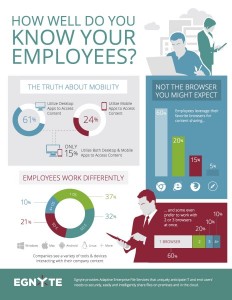I you have become an expert in a particular topic, then one of the quickest businesses you can start is a consulting business. When it comes to starting a consulting business, it really is as identifying who you want to serve, and then letting them know that you can serve them.
This is assuming, of course, that you actually have the skill set to help those people solve their problems
I’ve been in the consulting space since 2004, when I ran a sales contracting business in the Twin Cities, Minnesota.
I have worked in both corporate settings and for myself – most recently for myself – and I can tell you that both have their ups and downs, strengths and weaknesses, pros and cons. The main benefits of working for someone else include a steady paycheck, typically insurance and other benefits as well as job security.
However, as recent economic events have shaken both domestic and international companies to their core, it would seem as if job security is now a thing of the past. This can make entrepreneurs feel particularly wise about their choice to go into business for themselves.
I know that whenever I feel a little light on the client load or scrambling to get a few people to pay their invoices, I can often feel regretful about my choice to go into business for myself.
Then I remember the many, many perks of being in business for yourself and content myself with the fact that even those who labored at major corporations for 10, 20, 30 or more years got pink slips at the beginning or during the recession, and consider myself lucky to have gone into business for myself so soon.
So, what if the idea of working for a company just isn’t for you?
Or, in a more recent and unpleasant trend, what if you’ve been downsized or outright fired from your company and can’t find the enthusiasm to climb the corporate ladder anymore?
You are better off utilizing that experience to start a consulting or coaching business. No matter what your experience is, there are people who need help with what you’ve come to know and do well.
What it’s like being a freelance consultant
What does the job entail?
That’s a little like asking Baskin Robbins how many flavors of ice cream they have! In short, just about everything! Freelance consultants offer a wide variety of services for their clients, including:
- Writing
- Photography
- Marketing
- Human Resource
- Public Relations
- Advertising
- Graphic design
- Social media strategies
- Food services
- Delivery
- Organization
- Motivation
- Coaching
- Restructuring
- Landscape design
As you can see, nearly any service that can be provided by a small, medium or large company can be readily accomplished by a motivated, creative and experienced freelance individual.
Now more than ever, to save time, manpower, office space and, of course, money, companies of all sizes are outsourcing primary duties to entire teams of freelance consultants.
After all, why have an entire, full-time graphics design team on staff and have to equip them with sophisticated and pricey equipment when for a fraction of the price you can hire a freelance graphics designer to whip up your new business card, poster or brochure?
In fact, many such professionals who have been downsized have been forced to join the ranks of freelance consultants. These were former office workers with years of experience who one day found themselves replaced by, you guessed it, freelancers!
Being a freelance consultant allows you the freedom to pursue your own career dreams while also “sailing your own ship,” so to speak. Depending on your overhead, your motivation, your inner goals and income needs, your youth and enthusiasm, you can set your own schedule, work your own hours and take on as many – or as few – clients as you choose.
The downside, of course, is that you have no corporate umbrella offering you a steady bi-weekly or monthly paycheck, health insurance 401(k) or other retirement program. As we’ve seen from recent economic developments, however, such “luxuries” are in jeopardy even for the most entrenched companies, such as Circuit City, Borders and Steak & Ale, which have since gone bankrupt.
It’s important, though, that as a freelance consultant you treat your personal brand as nothing less than that of a Fortune 500 business. Companies and individuals are often reluctant to hire freelancers that don’t mesh with their own internal sense of how a business is run.
So while freelancing might sound like a “four-hour work week,” the fact is that a lot of work goes into creating a successful freelance consulting business. While it’s true you won’t have one boss, in busy times you may find yourself with a dozen bosses!
Qualities of a successful consultant
In my experience, to be a successful freelance consultant, you need the some key consulting skills. And these skills have little to do with the technical aspects of your area of specializations. The people who struggle in the consulting business do so not because they don’t know their area of specialization, it’s simply becuase they’ve failed to value the following the essentials that will ensure they u succeed in the business of freelance consulting, here are some tips to keep yourself in check:
- Start off on the right foot: Set the right tone from the very beginning by looking, acting and regarding yourself as a professional. Regardless of the business you’re in, think of yourself as a professional and others will as well. I always remember that “I’m the boss,” even if I’m just stepping around the corner to get a cup of coffee from the local café or buying printer paper from the office supply store; professionalism matters, whenever, wherever you are.
- Play well with others: Be polite, pleasant and in control of your emotions. The customer may not always “be” right, but they like to feel like they are; let them, and blow off steam later when no one is around! People like to work with people they like; be one of them and you will find business often comes to you, rather than the other way around.
- Keep a regular schedule: While it might seem like being a freelancer will allow you to sleep in or keep irregular hours, know that most clients will still want to contact you during regular business hours.
- Have discipline: It can be tempting to read a newspaper at a coffee shop every morning, order takeout for every lunch, take in a movie every afternoon and eat out every night, but… when will you work? Freelancing is more than a lifestyle; it’s a career choice. When your work is done, play all you want; but starting off with discipline is a good habit to build.
- Don’t confuse “freelance” with “footloose and fancy free”: Freelancing is hard work. Yes, you can choose the time you want off but if you’re like most freelancers, it will be hard to give up opportunities when they arise. The trade-off is that you get to work in a field you love and make a living while doing so! That’s the real “freedom” in freelancing.
- Look professional: Even if you’re a landscape designer who is going to get dirty most days, dress for the field in a way that is clean, conservative and acceptable to most clients. You certainly can’t wear a three-piece suit to install a sprinkler line, but your strip club T-shirt and cut-off jeans might not make the most professional impression, particularly on a new client with certain… sensibilities.Gauge yourself according to professional standards in your industry; then act accordingly. I say this with a “grain of salt” however. The reason is most people here in Liberia have come to know me as the jean trouser consultant. You have a better chance of finding me in a pair of jeans, a dress shirt and a jacket, then in a three piece suit and tie as most business consultants are.
I can get away with this because I’ve paid my dues. Earlier in my career I wore the three pieces even though I did not particularly like them. I had to wear them because I needed people to take me serious and listen to me. As time have gone by, and most of my work coming from referrals, I became confident of introducing my own style of what a consultant can look like.Now don’t get me wrong, even though I wear jeans, I still dress professionally.
- Get some (legal) advice: Working as a freelancer doesn’t require a special license or certification in most cases (always check to be sure), but you will often be signing contracts and, in many cases, providing contracts to help folks hire you. At the very least, have a trusted lawyer draw up a standard work-for-hire contract – or download one from a trusted and respected legal website.
- Form a tight network: Freelancing can become very isolated, particularly if you work from a home office such as a freelance graphic designer or medical transcriptionist. It can help to form a close network of three to four fellow freelancers, either locally or online, who you can go to for support, questions, answers or just plain fun. Remember, success never happens in a vacuum; reach out in times of need, or simply to help another freelancer learn the ropes!
- Create a high profile: Get your name out there. Now more than ever, FREE social media sites like Facebook, Twitter and LinkedIn allow you to create a strong online brand for literally NO startup costs. Most clients WILL “Google you” before hiring you, so you want to make a good impression when they do. Take a class or two, read a book or follow a few social media blogs and bone up on high to create a high profile for yourself – online and off!
- Even if it’s at home, run a tight home office: I suggest you have a separate office at home where you can keep your freelance work, files, records, computer, phone, etc., separate from your home life. This may be a challenge at first, but even if it’s just a broom closet or half of the garage for now, having someplace to “go” for work is a real incentive on those days when freelancing can become most challenging. My first office which was at home, was the smallest room in the house. I had it equipped with office desks and chair, a bookshelf, a filing cabinet, and on the walls hung my certificates etc.
- Surround yourself with success: As you begin a career as a freelance consultant, success will become very important; to you AND your clients. Associate with successful people, read books by successful people, dress successfully, act successful and soon, success will become a habit that you won’t easily break.
- Have high standards: Finally, set high standards for yourself, your business, your career goals – even your clients. No one wants to work with someone who delivers less than they expect; bring more to every client and you will find your work challenging, rewarding… and profitable!Let me sound a warning: When you raise your standards you will be losing some friends and family in the process. Some of your old acquaintances just won’t get it. Never mind them. I’m a young man still in my mid-twenties. Obviously I’ve accomplished a lot so far but trust me; none of those accomplishments would have been possible had I not set some pretty high standards for myself.When I set off to run my own ship, I knew that the people I needed to meet in order to get the contracts I needed to get hung out in more upscale restaurants, cafes etc. I made the decision to stop going to the old places I used to go. Naturally, their decision did not go very well with all my friends; but my mind was made up and there was nothing changing it.
I don’t have to tell you that I did not keep those friends for much longer.
If you’re going to make it in the world of freelance consulting, you must be ready to set standards that may not be popular with everyone.
At the end of the day, being a freelance consultant is a rewarding career that offers the freedom to pursue both monetary gain and personal enjoyment by doing what you love for a living.
What are your thoughts about becoming a freelance e consultant?
What specific questions do you have?
(80)
Report Post





